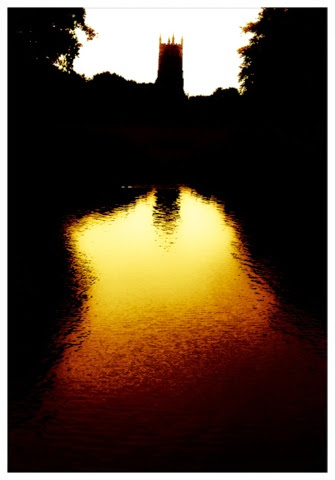Soon I was receiving their new in-house magazine 'Network', and in the first edition there was a competition. Write a piece on working in a TIC back in Roman times, they said. First prize was a beautiful new book on Roman Britain. I won it, by writing the following. I hope you like it.
"Hello dear ..."
"Hello dear. Did you have a good day at the Informationus Office?"
"Oh,not bad on the whole, but we had some tricky customers in this morning."
"Did you?"
"Yes. One shifty looking so-and-so wanted to know on which corners the biggest crowds gathered while waiting for the Arena to open."
"Shifty?"
"Well, yes. He had long baggy clothes on and while he as leaning against the counter to see the street-map I was showing him. I couldn't help noticing a third hand emerge from one of his front pockets and grab a load of free leaflets!"
"I see what you mean."
"Then we had an off-duty centurion. Poor devil, he was frozen because he was from the other end of the Empire, Peloponnese I think, and they've posted him to Hadrian's Wall! Anyway, I said that the best thing he could do would be to get down to the baths a bit quick and immerse himself in the hot ones until his leave is up!"
"Not many tourists about at this time of the year, is there?"
"No, not really, I suppose. But we do get a fair proportion of tinkers in. They want to know which are market days and what time the soldiers patrol - because they don't want to get moved on, I should imagine. One asked me which road he could get from here to Corinium on without being mugged! I said it depends how fast you can run."
"Is there anything good on at the Corinium Arena next week? I thought I'd take the kids along for a treat."
"Well, let's see now. On Tuesday there's 'Centurions versus Gladiators' with a few wild animals thrown in for good measure. I bet they'd love that!"
"Anyone special on the bill?"
"Well, the Gladiators' captain is Sid the Centurion Strangler and the others have Gladys the Gladdy-Basher - that ought to keep them happy."
"That's fine. I'll leave the kids in there while I do the shopping. It's nice to have somewhere that you can leave the kids where you know they'll be safe."
"I'll have to get in early to the Centre tomorrow, before the rush starts, so that I can make a start on the accommodation lists. Otherwise I'll have the Director breathing down my toga."
"Does he get bothered?"
"Not really, but he likes to keep the pot bubbling, as it were."
"I should think he's got enough on his plate anyway."
"Yes, he's trying to convince the Forum that we do a useful job. That's why he likes to keep us on the go, 'cos it's not too good for his argument if some Senator wanders in and finds us all sitting there, feet up and sandals off, studying Marathon form!"
"Have you got the new Pyramid Trail promotional stuff yet?"
"Yes, why?"
"Well, I thought I'd take the kids off on that next year. It would be nice if you came too, but I expect you're likely to be busy - what with all those folks coming in for the big census."
"Yes, I think I'll be tied up with all that, but you shouldn't be away more than eighteen months or so if you take the package deal. I'll nip down to the baths when they're quiet, so you needn't worry about my laundry."
"I'll need a good map. What have you got down down at the Centre?"
"There's a very good map of the Empire on folded papyrus - that's nice and light when you're travelling. We had a poor bloke in today who was trying to get around using a complete set of VIII over LCCCMXVV Ordnus Servus, engraved on marble! He was strapped up with more leather than a socked-out centurion - and his donkey looked a bit hollow backed too! Those maps don't even have visitor information overlay - not like your papyrus ones. Sometimes we get some twits with sand-boxes. We spend hours drawing out the local street-map for them with our fingers, then they go out the door and the wind whips the lot away! Anything rather than spend a few crowns on a decent map!"
"Ah well, I suppose you have to put up with that sort of thing when you work in a Visitor Information Centre. Here, you were a bit late back tonight, weren't you?"
"Yes, I got lost."































